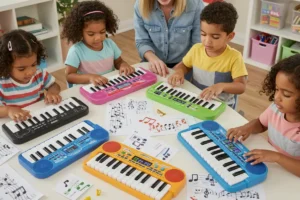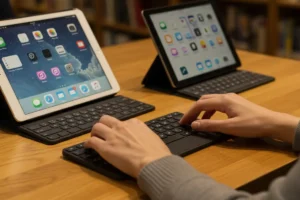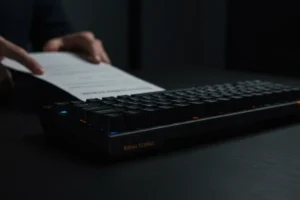Hey there! How are you guys ?, today i gonna say about something special (at least for me) the future of keyboards, with Virtual Keyboards.
Are virtual keyboards poised to replace traditional ones? This is the topic, so let’s say all about these little guys.

The Rise of Virtual Keyboards
Virtual keyboards have become more often in our daily lives. From smartphones to tablets, these on-screen keyboards offer a convenient typing solution without the need for a physical hardware.
Their portability, customizability, and integration with modern devices make them a popular choice for some users.
Advantages of Virtual Keyboards:
- Space-saving design: Ideal for compact devices like smartphones and tablets.
- Customizable layouts: Users can modify the keyboard to have their preferences.
- Integration with AI: Features like predictive text and auto-correction can have a better typing efficiency.
- Cost-effective: Eliminates the need for additional hardware.
However, it’s essential to have in mind that while virtual keyboards offer numerous benefits, they also come with certain limitations that might affect user experience.
The Appeal of Traditional Keyboards
Despite the advancements in virtual keyboard technology, traditional physical keyboards continue to hold their ground, especially among professionals and gamers.
Why Traditional Keyboards Still Matter:
- Tactile Feedback: The physical sensation of pressing keys provides a satisfying typing experience.
- Typing Speed and Accuracy: Many users find they can type faster and more accurately on physical keyboards.
- Durability: Mechanical keyboards, in particular, are known for their longevity.
- Versatility: Good enough for various tasks, from writing to gaming.
For those who spend significant time typing or require precise input, the tactile nature of physical keyboards remains unmatched.
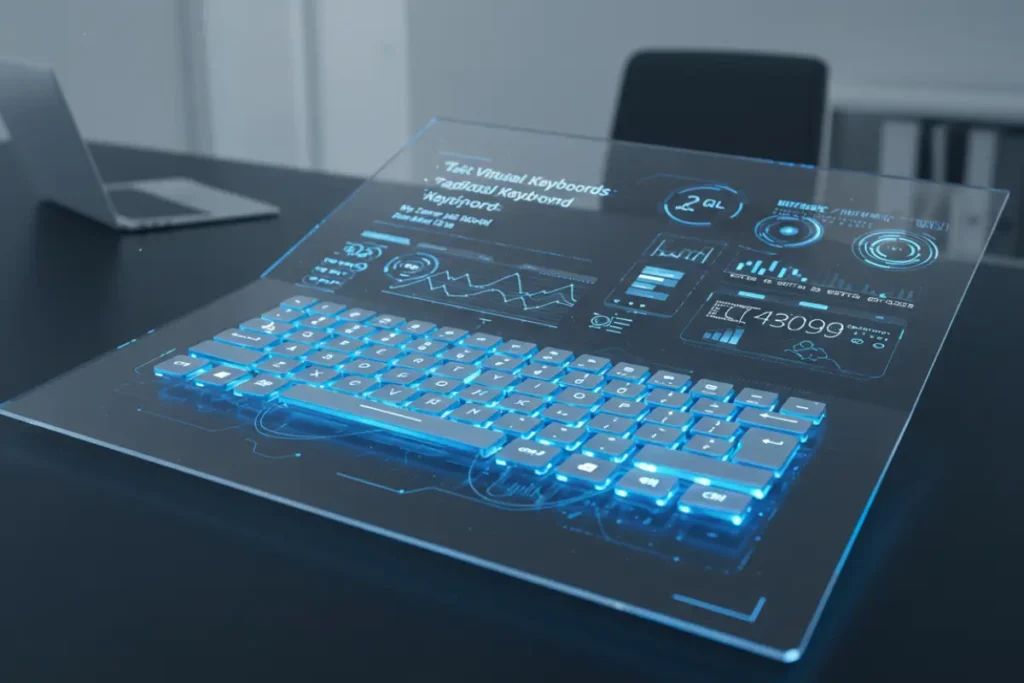
Innovations Bridging the Gap
The tech industry is actively working to combine the best of both worlds, the purpose is simple, offer the portability of virtual keyboards with the tactile feedback of traditional ones.
Emerging Technologies:
- Haptic Feedback: Some virtual keyboards now incorporate vibrations to simulate key presses.
- Projection Keyboards: Devices that project a keyboard onto a surface, allowing for typing without physical keys.
- Adaptive Keyboards: Keyboards that adjust their layout based on user behavior and preferences.
These innovations can enhance the virtual typing experience, making it more intuitive and user-friendly.
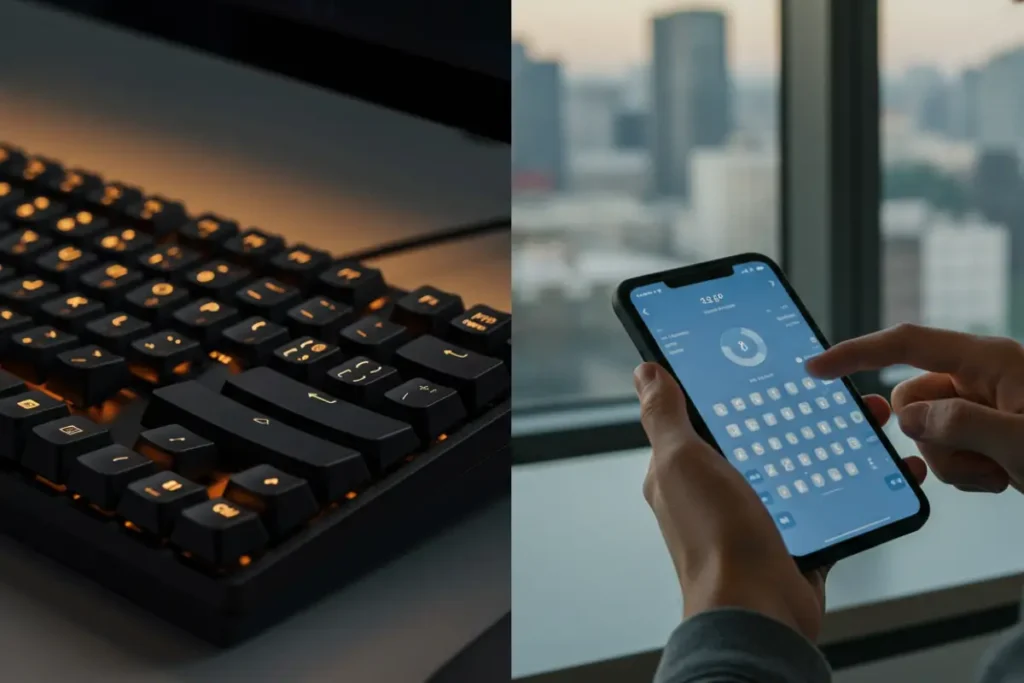
The Future Landscape of Typing
Looking ahead, it’s evident that both virtual and traditional keyboards will coexist, each serving specific user needs and preferences. While virtual keyboards will dominate in mobile and casual settings, traditional keyboards will remain essential for tasks requiring precision and extended typing sessions.
It’s like a Batman and Joker history by DC Comics, both of them need each other to shine.
Key Takeaways:
- Virtual keyboards are ideal for on-the-go typing and casual use.
- Traditional keyboards are preferred for tasks demanding accuracy and tactile feedback.
- Hybrid solutions are emerging, aiming to offer the benefits of both.
As technology continues to evolve, we can anticipate further innovations that will redefine our typing experiences.
See More
- Best Piano Keyboards for Kids and Young Learners
- Typing on the Go: Top Keyboards for iPad and Android Tablets
- Royal Kludge Keyboards: Are They Still Worth It in 2025?
Final Thoughts
In conclusion, while virtual keyboards are making significant strides and offer numerous advantages, traditional keyboards are far from obsolete. The choice between the two largely depends on individual needs and preferences.
If you’re interested in exploring more about keyboard technologies, feel free to check out our articles on The Future of Foldable and Flexible Keyboards and How to Choose the Best Keyboard for Your Needs.
🎮 Join Our Discord Community!
Are you passionate about keyboards, gaming, and tech? Come hang out with fellow enthusiasts, ask questions, share your setup, and stay updated with our latest content!
👉 Join Now